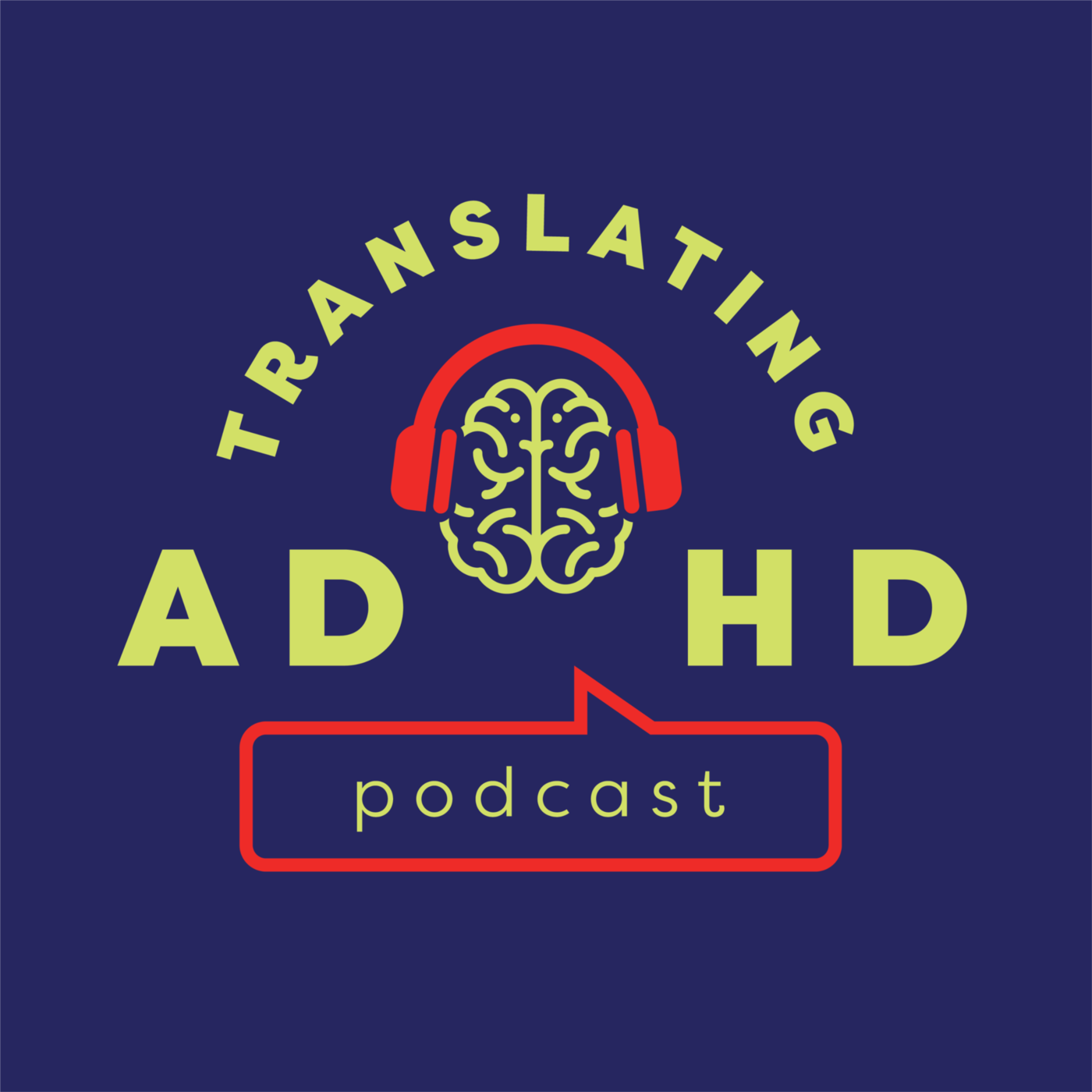
1.4M
Downloads
269
Episodes
We believe that success with ADHD is possible... with a little translation. Hosts Asher Collins and Dusty Chipura, both ADHD coaches who have plenty of insight to share navigating their own ADHD experiences, discuss how to live more authentically as an adult with ADHD and how to create real, sustained change to achieve greater success. If you are an adult with ADHD who wants more out of their business, career, and life, this is the podcast for you!
We believe that success with ADHD is possible... with a little translation. Hosts Asher Collins and Dusty Chipura, both ADHD coaches who have plenty of insight to share navigating their own ADHD experiences, discuss how to live more authentically as an adult with ADHD and how to create real, sustained change to achieve greater success. If you are an adult with ADHD who wants more out of their business, career, and life, this is the podcast for you!
Episodes
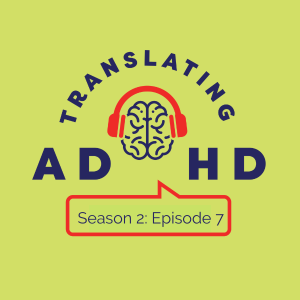
Monday Nov 13, 2023
Pulling the Learning Forward: The Third Barrier of ADHD
Monday Nov 13, 2023
Monday Nov 13, 2023
In this podcast episode, hosts Ash and Cam discuss the third barrier of ADHD, which is learning. They emphasize how this barrier aligns with the stages of coaching: awareness, action, and learning. They also discuss how ‘pulling the learning forward’ is so hard with ADHD but necessary for sustained change and growth.
Cam addresses his concerns about the quality of coaching in the ADHD community, cautioning against quick-fix approaches and promoting a genuine coaching process. He emphasizes that like any good coaching engagement, coach training programs should have a robust experiential element.
Shifting to the topic of learning, the hosts share insights into the coaching journey, highlighting the importance of curiosity, detachment from outcomes, and client-focused engagement. Ash and Cam discuss how the third barrier can be the most difficult to overcome with false starts and dropped practices. They also share how learning is key to creating real change with ADHD.
They both share client stories of struggle and eventual nuggets of learning. They conclude by encouraging listeners to be wary of promises, fixed-time programs, and coaches who talk more than they listen.
Episode links + resources:
For more of the Translating ADHD podcast:
- Episode Transcripts: visit TranslatingADHD.com and click on the episode
- Follow us on Twitter: @TranslatingADHD
- Visit the Website: TranslatingADHD.com
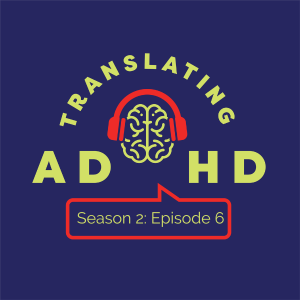
Monday Nov 06, 2023
Moving into Action with ADHD
Monday Nov 06, 2023
Monday Nov 06, 2023
In this episode of Translating ADHD, Ash and Cam discuss the second barrier of ADHD - action. They discuss how the second barrier epitomizes the universal ADHD dilemma of not taking action on the thing we know we ought to do. They explore how small and subtle barriers can often hinder progress, even when the bigger issues are recognized. They emphasize the importance of breaking down tasks into manageable steps, taking action, and learning from the experience.
Additionally, they share examples from their coaching practices of clients overcoming the second barrier. They also refer to two resources from Season 1 generated by podcast listeners - The Six Cs to Completion and Cam’s Seven Factors to Action.
Episode links + resources:
For more of the Translating ADHD podcast:
- Episode Transcripts: visit TranslatingADHD.com and click on the episode
- Follow us on Twitter: @TranslatingADHD
- Visit the Website: TranslatingADHD.com
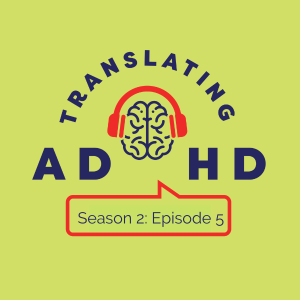
Monday Oct 30, 2023
On the Cusp of New Awareness with ADHD
Monday Oct 30, 2023
Monday Oct 30, 2023
In this episode of Translating ADHD, Ash and Cam discuss the importance of awareness in managing ADHD. They explore how difficult it can be for individuals with ADHD to reach a new level of awareness, which is crucial for initiating any kind of change. They also highlight that many clients who seek coaching have recently become aware of their ADHD diagnosis, whether it's a new realization or a revisiting of a childhood diagnosis.
Listeners will recall past episodes discussing the three barriers of ADHD. Awareness is the first barrier and also the first stage of coaching. Tune in to learn more about the role of awareness in the coaching process and how it can lead to positive change for those with ADHD.
[00:01:36] Becoming aware of ADHD.
[00:07:27] Facade building and masking.
[00:08:37] Denial about ADHD impact.
[00:12:26] New information and resistance.
[00:19:11] Appreciating strengths and challenges.
[00:23:38] ADHD and developing identity.
Episode links + resources:
- Join the Community | Become a Patron
- Our Process: Understand, Own, Translate.
- About Cam and Asher
- Episode 104 Season One: The First Barrier of ADHD
For more of the Translating ADHD podcast:
- Episode Transcripts: visit TranslatingADHD.com and click on the episode
- Follow us on Twitter: @TranslatingADHD
- Visit the Website: TranslatingADHD.com
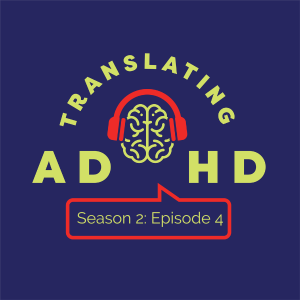
Monday Oct 23, 2023
The Coaching Process: Stages and Barriers to Change with ADHD
Monday Oct 23, 2023
Monday Oct 23, 2023
In this episode of Translating ADHD, Ash and Cam discuss the coaching process, focusing on how this process actually mirrors the three barriers of ADHD: awareness, action, and learning. This can quickly become a friction point in the coaching engagement for both client and coach. Ash and Cam emphasize the importance of creating awareness around the challenges clients face and how coaching can help individuals overcome these barriers.
The conversation also delves into the significance of learning from both success and setbacks and how coaching encourages curiosity and reflection. They share a number of client scenarios to illustrate the dilemma and how clients overcome the challenges. They tease future episodes where they will explore each barrier in more detail and how the coaching process can support informed change.
Episode links + resources:
For more of the Translating ADHD podcast:
- Episode Transcripts: visit TranslatingADHD.com and click on the episode
- Follow us on Twitter: @TranslatingADHD
- Visit the Website: TranslatingADHD.com
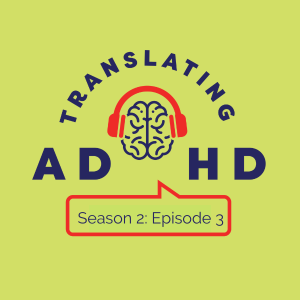
Monday Oct 16, 2023
ADHD and Barriers to Journey Thinking
Monday Oct 16, 2023
Monday Oct 16, 2023
In this episode of Translating ADHD, Ash and Cam continue to explore the concept of journey thinking and how it relates to ADHD. They focus on illustrating specific barriers to journey thinning and how ADHD can elevate a destination or fixed mindset. Ash and Cam discuss how ADHD individuals often get attached to certain outcomes, identities, and beliefs, which can hinder their ability to adapt and make positive changes - key to any coaching relationship.
They highlight the importance of embracing journey thinking, which involves being curious about your own experiences, recognizing emotional components, and finding more resourceful ways to approach challenges. The episode features several client examples to illustrate the benefits of this mindset. They also discuss how coaches can benefit from a journey thinking mindset.
Episode links + resources:
For more of the Translating ADHD podcast:
- Episode Transcripts: visit TranslatingADHD.com and click on the episode
- Follow us on Twitter: @TranslatingADHD
- Visit the Website: TranslatingADHD.com
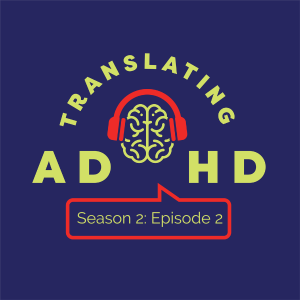
Monday Oct 09, 2023
ADHD and Journey Thinking
Monday Oct 09, 2023
Monday Oct 09, 2023
In this episode of Translating ADHD Season 2, Episode 2, hosts Ash and Cam discuss the concept of "journey thinking." They emphasize the importance of journey thinking in the coaching process for both clients and coaches. Journey thinking involves focusing on the process rather than fixating on a specific destination or outcome. They use metaphors like standing on stepping stones in a foggy pond and unraveling a sweater to illustrate this mindset.
The hosts also mention the challenges of detaching from outcomes and share insights on how both clients and coaches can develop curiosity and navigate the coaching process effectively. They highlight the value of the show's Discord community in promoting journey thinking among listeners.
Episode links + resources:
For more of the Translating ADHD podcast:
- Episode Transcripts: visit TranslatingADHD.com and click on the episode
- Follow us on Twitter: @TranslatingADHD
- Visit the Website: TranslatingADHD.com
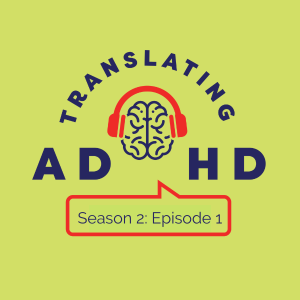
Monday Oct 02, 2023
Translating ADHD: An Introduction to Our Season 2 Reboot
Monday Oct 02, 2023
Monday Oct 02, 2023
Returning from their summer hiatus, hosts Asher Collins and Cameron Gott introduce the new season of Translating ADHD and explain the changes they've made to the podcast. They discuss the concept of "seasons" and how they will organize the content around specific topics. Ash and Cam see an opportunity of this Season 2 as a reboot of the podcast - to review and revisit key concepts unique to the podcast. The idea is that new listeners can start fresh with Season 2 and veteran listeners can synthesize concepts already familiar to them.
The hosts also mention their focus on coaching processes and how they intend to provide insights to help listeners navigate the barriers of ADHD. They share upcoming topics and changes to the Discord community for their patrons. The episode sets the stage for the season and hints at the upcoming discussion on "journey thinking" in the next episode.
Episode links + resources:
For more of the Translating ADHD podcast:
- Episode Transcripts: visit TranslatingADHD.com and click on the episode
- Follow us on Twitter: @TranslatingADHD
- Visit the Website: TranslatingADHD.com
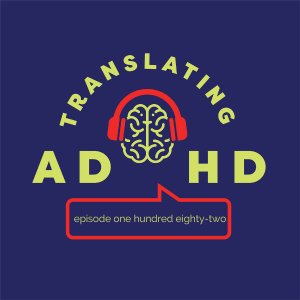
Monday Jul 17, 2023
Translating ADHD: Season Four Recap
Monday Jul 17, 2023
Monday Jul 17, 2023
Ash and Cam discuss their upcoming summer break and reflect on the topics covered in the fourth season of their podcast, Translating ADHD. They mention the importance of taking breaks and planning for the future. They recap the various themes explored throughout the season, such as the complexity of ADHD, lived experiences, race and culture, hierarchy of needs, purpose, relationships, the adrenaline response cycle, being misunderstood, advocating for oneself, and wrapping up the season with disruption.
They also mention the potential changes coming to the show, including a possible soft reboot and a focus on sharing more of the coaching process. They express their gratitude to their listeners and discuss the power of language and connection in understanding and navigating the ADHD experience. Cam shares his interest in revisiting and reworking models, particularly the Mount Rainier model, and exploring the nexus of neurodiversity, emotion and leadership. They encourage listeners to embrace curiosity and continue to advocate for themselves. They express their gratitude for the podcast and their ongoing collaboration with each other, and they look forward to their return on the 18th of September for season five.
Episode links + resources:
For more of the Translating ADHD podcast:
- Episode Transcripts: visit TranslatingADHD.com and click on the episode
- Follow us on Twitter: @TranslatingADHD
- Visit the Website: TranslatingADHD.com
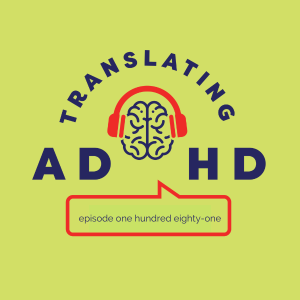
Monday Jul 10, 2023
When Your Relationship with Your ADHD Changes
Monday Jul 10, 2023
Monday Jul 10, 2023
The hosts culminate the current theme of disruption and ADHD by exploring how change and disruption can fundamentally change one’s relationship with their ADHD. We often think that once we learn about our ADHD and lock into effective tools, practices and perspectives that our relationship with our ADHD will become fairly immutable. Just like any relationship, though, life events both planned and unplanned will change the dynamic of a relationship, including our relationship with our ADHD.
Ash and Cam discuss the challenges Ash is currently facing with his executive functioning and challenges of managing his ADHD. Ash acknowledges his struggle and the recent discovery of this significant change. Cam points out how Ash had to get both vulnerable and curious to make this observation. Even seasoned ADHD coaches like Ash have to re-navigate their own Understand, Own, Translate process.
Ash reflects on his recent experiences and major life events, including the pandemic, divorce, moving to a new home, his father's passing, his child coming out and his own transition. Ash discusses how these events have led him to reevaluate his relationships, especially with his mother and her family, and how these events allowed him to prioritize authenticity and integrity.
Asher shares the emotional and physical changes he has experienced, as well as the challenges of navigating his ADHD alongside hormonal changes. The discussion touches on the need to let go of expectations of returning to a previous "normal" and embracing the journey of self-discovery and adaptation. Cam highlights the dynamic nature of change and the challenges of pinning down and understanding evolving situations. They discuss the importance of shifting from binary thinking to journey thinking, accepting that change is a continuous process. Ash shares his personal journey of self-acceptance and finding new ways to navigate his ADHD and gender transition.
The episode concludes with Ash expressing gratitude for the support and love he has received from listeners and the greater community. Ash is grateful for the platform to share his story as a trans person and continue their work on the podcast.
Episode links + resources:
For more of the Translating ADHD podcast:
- Episode Transcripts: visit TranslatingADHD.com and click on the episode
- Follow us on Twitter: @TranslatingADHD
- Visit the Website: TranslatingADHD.com
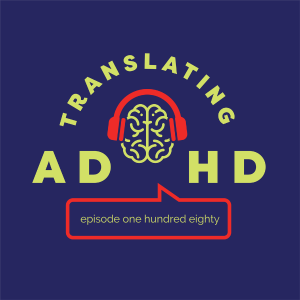
Monday Jul 03, 2023
The Collective New Normal with ADHD
Monday Jul 03, 2023
Monday Jul 03, 2023
Ash and Cam continue to discuss the topic of disruptions in the context of ADHD. They reflect on previous episodes where they talked about daily hiccups and bigger life disruptions. In this episode, they explore the concept of the new normal all of us are facing, especially post pandemic, and the challenges it poses for those of us with ADHD. They address a paradox with change, where we crave novelty and spontaneity but struggle with unexpected disruptions. They also discuss current disruptions in the world today, such as supply chain issues and medication shortages.
Both hosts share client stories regarding the medication shortage, touching on the frustrations and the difficulties in obtaining prescriptions, as well as the impact on individuals' executive functioning. They mention the importance of tending to one's nervous system and finding ways to relax and reduce stress in order to navigate the constant disruptions of the new normal. Finally, they encourage listeners to take stock of their experiences and consider the challenges they have overcome over the past five years.
Episode links + resources:
For more of the Translating ADHD podcast:
- Episode Transcripts: visit TranslatingADHD.com and click on the episode
- Follow us on Twitter: @TranslatingADHD
- Visit the Website: TranslatingADHD.com
